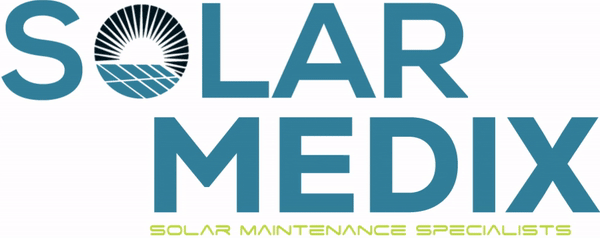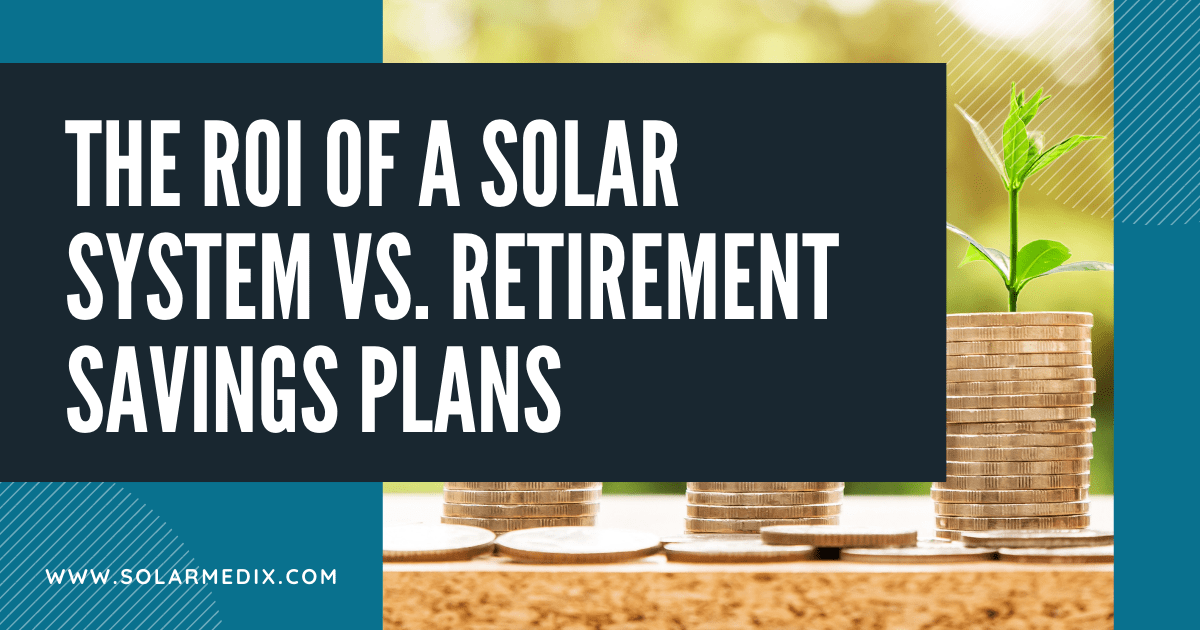This comparison between the ROI of a solar system and traditional retirement saving plans is not intended as financial advice. It is merely a comparison to give those planning to install a solar system an idea of what financial benefits they may receive. Before making any serious financial decisions, you should always speak to a financial expert.
The perfect retirement plan is different for everyone. However, when you stop working, you will want to have something that you can fall back on. Many people save so that, in their golden years, they will have some security. The more a person saves, the more financial security they will have down the road. However, expenses will also be recurrent and are likely to rise with time.
Any investment decisions you make in your youth can make a considerable impact on your adult life. However, there are many options when it comes to investing, and choosing the right ones can be difficult. One of those options you might come across is investing in solar.
Investing in Solar as Part of Retirement Planning
When most people think of investments, they are usually thinking of 401K accounts and stock-backed IRAs. However, solar energy can also be a wise investment as part of your retirement planning.
Solar Cuts Costs
One of the wisest decisions that you can make as part of your investment planning is to reduce your spending. This could entail lowering your cost of living or downsizing your home.
With a solar system, you could significantly reduce your electricity bills over the next 25 years. Depending on the amount of power you consume, this could save you hundreds of dollars per month.
Of course, installing solar power does not come without an expense; you will have to pay for the installation and labor first. But, what’s great about installing a solar installation is that it will last long enough for it to pay for itself over time. As a result, you will get back your investment while also making savings on your installed system.
Most solar systems are designed to last around 25 to 30 years. While the system can outlast its warranty, it will still provide you with many years of free power.
Besides reducing your utility bill, it will also protect you from future electricity price hikes. In the next twenty years, the cost of power will most likely rise dramatically. For instance, the cost of power between 2005 and 2015 increased by 34%.
With solar power, the energy you pay per kWh will remain the same: $0. As electricity rates rise, you will not have to worry about getting a job in your old age. Instead, you will be able to save even more on your electricity bills.
Financial Benefits Now and in Future
Investing in solar will offer both upfront and future benefits. If you buy a solar system, the federal government in the US will offer a 26% rebate for the cost of the system. In other countries, the rate may vary. However, many governments around the world have similar systems in place.
Solar will help you reduce your bills by thousands of dollars over the life of your system. Another bonus is that the returns from the solar systems are not taxable, unlike other retirement plans.
If you live in a state that supports the sale of solar renewable energy certificates, you can get even more income from a solar system. The certificates are given to anyone with the installed solar capacity for each megawatt of power they generate. The certificates can be sold on the SREC market for extra income.
Stability in Your Golden Years
A major benefit of solar energy is that it offers stability when compared to existing retirement plans. Your retirement savings will not be tied to the performance of the stock market or the general performance of the economy.
The return on investment with solar systems is stable. It only depends on the fact that you will keep using electricity and that the price you pay for power will keep rising. These odds are better than betting on the economy, which seems to experience shocks to the system at least once every decade.
If you are looking for stability in your retirement investment plan, solar power is a good choice.
Solar Will Boost the Value of Your Home
If you are planning to retire, you need to think of your net worth. This will mean factoring in all of your liabilities and your assets.
When you install solar panels, it helps to boost the value of your home. As a result, doing so will increase your net worth with time compared to if you had not installed solar panels.
A rise in home value could come with higher insurance payments; however, that will be offset by the ROI of the solar system.
The ROI of a Solar System Compared to Other investments
Investing in solar comes with various benefits, and it is important to understand the ROI of the system.
When you invest in solar, the ROI will depend on factors such as how much power you consume and the electricity production of the system. The more energy you consume, the more you stand to gain by installing a solar system, which will mean a higher ROI.
On average, commercial users of solar see an ROI of around 14% in NY, Maryland, Delaware, Virginia, and Pennsylvania. For residential users, the ROI is usually around 10%.
In the stock market, you get an average annual ROI of 7% when you invest in retirement plans.
If you invest in bonds, you get an ROI of around 5.3%. And, if you invest in more risky bonds, you could see better returns – but in retirement planning, not many people are willing to take huge risks.
If you invest in real estate, the ROI for commercial property is around 9.6%, while residential real estate is about 10.6%. The only downside of flipping properties is that there are a lot of risks, and a market downturn could leave you in debt.
When choosing how to invest in your retirement, you will have many options. What you decide is best for you all depends on your risk tolerance. However, if you like the idea of stable returns with minimal risk, investing in solar is a great choice.













